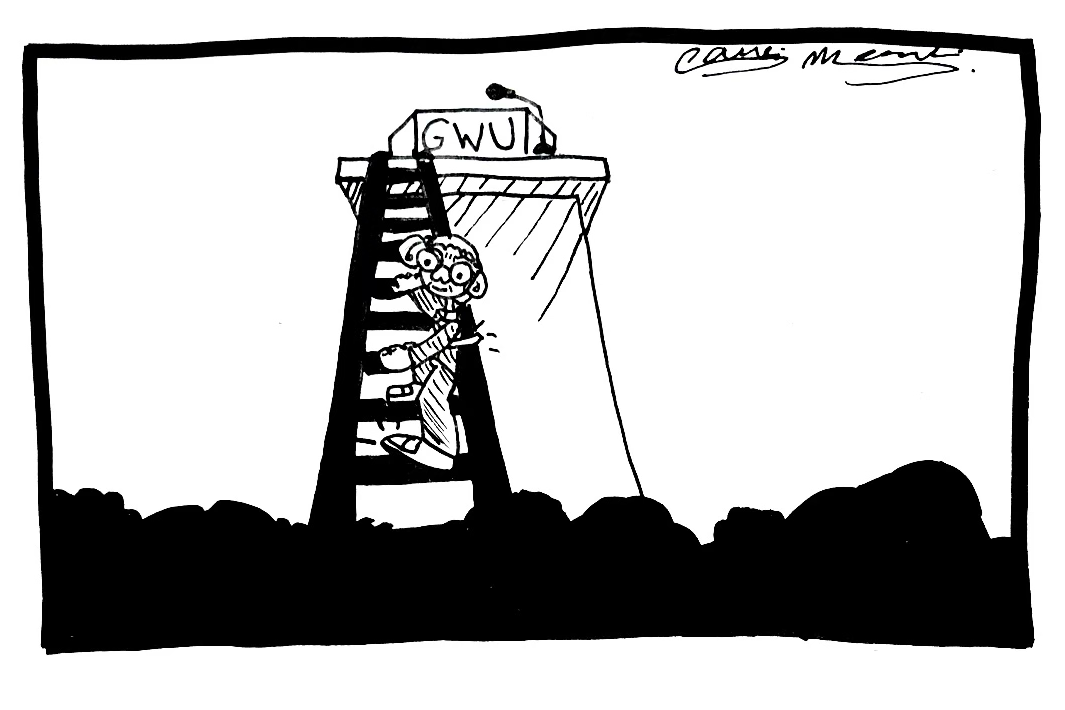The protests in D.C. this weekend were peaceful, but we should not be happy with the state of affairs on our own campus. We are increasingly a divided community – Palestinian supporters vs. Jewish supporters. And if we can’t do anything to stop it, then there’s no hope for the rest of the world, either.
You don’t just sense it. You see it in students’ eyes, you hear it in their tone, you feel it in their strong rhetoric. Students on this campus are not embracing each other. They are not reaching out to understand the other side. They are not even welcoming the other side to some events. This must stop.
You want to show your solidarity for Israel? You want to highlight the plight of Palestinians? How about you take a little closer look at the issue for what it is: two sides agreeing on everything but semantics.
No matter what you think of the leaders in Israeli Prime Minister Ariel Sharon and Palestinian Authority Chairman Yasser Arafat, the overwhelming majority of reasonable people on both sides agree on the fundamentals: 1) they both want to stop the violence 2) they both want lasting peace 3) they both want some sort of a Palestinian state 4) they both welcome U.S. involvement 5) they are both sickened, like you and me, over the current situation. Are there some that do not fit this description? Yes, but they are not the majority – in the Middle East or here.
That’s a lot in common, folks. That is more in common than we are representing on this campus, where students wear their flags to show support for a side that really isn’t that different than the other.
An encouraging sign came last Monday when students gathered on Kogan Plaza to celebrate Israel’s Memorial Day. Two Palestinian students were welcomed and invited to light candles to commemorate the dead. It was one student who made that happen against the wishes of others attending the event. One student can make a difference.
I don’t want to dwell on a Hillel event that excluded five Arab students last week. I don’t want to dwell on complaints that Palestinians have disrupted certain events in the past. I want to dwell on what’s in your hearts.
When you think of Israelis, what image comes to mind? When you think of Palestinians, what do you see? If you’re not picturing one of your fellow classmates, then there is much to be done. You are all students, all decent people who have more important things to do than yell back and forth at each other about issues you mostly agree on. Listen to the other’s arguments, but then ask them about their home life, their studies, their hopes for the future. Do not be so narrow-minded as to define your fellow students by which cause they support.
I’m sick of hearing “our side is right” on this campus. I ask students to think about what that even means. If you’re Palestinian, you might say suicide bombings are the only defense against Israeli forces. If you’re Jewish, you are likely to say military action is justified to stop the suicide bombings.
So what does “being right” do for a student on GW’s campus? It creates conflict, sure. It tears students apart, absolutely. It makes GW leaders so afraid of conflict that they shut their doors to specific people. But nothing else is gained.
Who started it? Who is more to blame? Who is being more unfair? Those are questions about the leaders. What I’m asking for is some understanding about the people.
-The writer, a senior majoring in
journalism, is Hatchet editor in chief.





